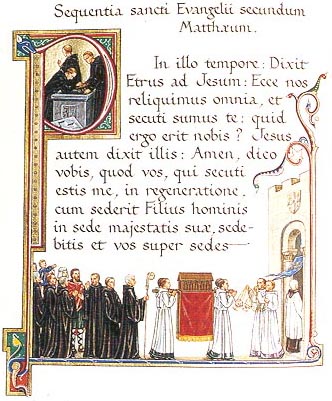MondayTwo priests came over to our house at noon to start the road trip out to Guelph for the Conference. I asked one of them, a newly ordained Curate, to bring some "interesting" music along. The other is new to our Diocese from the U.S., and I've been helping him get acclimated to life in the Great White North. We barely listened to the CD's as we got so wrapped up finding common connections and friends. In fact, I even missed the exit off the highway and to turn around and try again.
I was initially overwhelmed seeing so many friends all at once. There were about 175 clergy at this event and lots of connections to reestablish or create. After check-in the first Plenary Session introduced our theme: "Passionate Leadership: From Beleaguered to Beloved." Essentially, we would hear stories throughout the conference of people going from feeling depressed and run down and transformed and passionate.
 Jason telling me not to post his picture on "that blog of yours"
Jason telling me not to post his picture on "that blog of yours""Social Time" meant networking, talking about our various churches, and taking advantage of the over-priced bar. $5.50 for a beer? Yikes. Lots of people to talk to. Lots of stories to share.
Supper was followed by small-group discussions facilitated by the new Curates. Compline was said in our groups. Then there was another social time. In previous years I gather there were more plenary sessions and less social time, I'm glad that the balance was adjusted. Time in proximity with colleagues always seems to be the most important part of these events.
After the party was the after-party. 'Nough said. "What happens in Guelph stays in Guelph."
TuesdaySlept in Tuesday. Rejoined the group for lunch in
my kilt. A few people were familiar with Utilikilts before the conference, and one of two guys even told me they have a real kilt at home. Mine was much admired, especially by the ladies.
The afternoon was for scheduled free time. I opted to go on the beer tour. A bus took about two dozen of us to two local breweries for tour and tasting.
Wellington Brewery, our first stop, was a smaller operation than I expected. They emphasize traditional recipes and ingredients imported from England in their brew. We saw beer in process and admired the pleasing stain-glass fermenting vessels. I recognized the yeast smell from my dad's home brewing adventures.
The second brewery,
F and M, was even smaller. Their claim to fame is a kettle that heats the wort with direct heat. As it turns out, there is a lot of cross-pollination and cooperation between these microbreweries, and they often cooperate to find efficiencies. For instance, one plant will have a nice bottling line while the other will have a good canning line and then they'll trade services so that both breweries can offer cans and bottles.
Our last stop was a local pub where we sampled yet more beer, including some "real" style ales that have less carbonation and are served at a lower temperature than what most North Americans are used to.
Back on campus in time for supper. A word about the food: it was good, but not exactly calorie-counting-fare. In fact, I had gravy with every meal except one over the three days!
The day ended with another plenary session and social time. This night I went to bed early. One does get older year-by-year.
WednesdayBreakfast, then the last Plenary Session. It was divided between a presentation by Bishop Elliot and a Q and A Panel with the bishops known informally as "The Bear Pit." It's a custom at Toronto Clergy Conferences, I'm told, for the Bishops to allow their clergy to ask whatever they want. The doors are closed, it's just the priests and deacons, so you can imagine how intense that could get. Yet this year most of the questions were soft-balls prepared ahead of time and asked by the moderator. Then there was only time for two questions from the floor, which was pretty disappointing. I know that was the only real complaint about the whole conference that any of us had, which is remarkable.
 The Room for Our Plenary Sessions at the University of Guelph
The Room for Our Plenary Sessions at the University of GuelphBut we had one of the real gems of the conference: a fantastic Holy Eucharist liturgy. The Prayers of the People were a magnificent example of how moving sung prayers of the people can be. The Cantor did an excellent job. The sermon was good, as well. But the real prize was the liturgy of the Table (everything after the Peace). We gathered around a large square table and chanted repetitively while the new Deacons did an elaborate offertory rite. It focused on preparing the Altar Table itself rather than on the gifts of bread and wine. When they were finished, Bishop Johnson sung an entire Canon of the Mass. The Word were unfamiliar, yet poetic, and singing them was the right choice. Communion was by stations arranged naturally on the four-corners of the Altar Table.
 Bishop Johnson Presiding at Holy Eucharist
Bishop Johnson Presiding at Holy EucharistMany of us agreed that it was the best liturgy at a Diocesan event that we've seen in a long time. I paid my compliments to the planners and kept thinking of things we might try at COTM.
Lunch (more gravy). Then good-byes and the road trip back. We got stuck in traffic but didn't mind--we had a lot to talk about. New friends. New ideas. Funny things that happened.
I'm looking forward to the next such event in two years. In the mean time, my last Momentum Session is coming up in a week or two.
-t


















